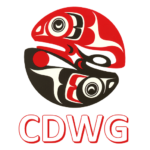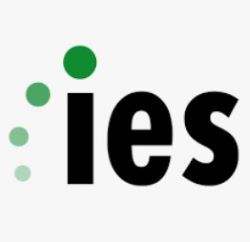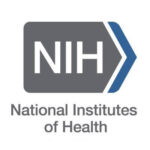Climate Change and Fertility – Josh Wilde
|
When: Friday, November 15th, 2024 (12:30-1:30PM)
Where: 360 Parrington Hall and on Zoom (register here)
Sign-up: Meet 1:1 with Dr. Wilde (sign-up sheet here!)
On November 15th, Josh Wilde from the University of Oxford and co-editor of Population and Development Review, will examine the aggregate effects of climate change on fertility. Interest in the effect of climate change on major demographic processes is burgeoning. While our understanding of the linkages between climate, mortality, and migration are relatively well developed, the effects of rising temperatures on human fertility rates are not. In this lecture, Dr. Wilde will discuss this research area, its history and development, and how he and his co-authors are filling knowledge gaps in this field. He will outline what is known about the mechanisms which drive the link between temperature and birthrates. Finally, he will end by describing where our understanding is still limited, providing a roadmap for future researchers to follow.
This seminar is co-sponsored by the Population Health Initiative. In addition, there are opportunities to meet with Dr. Wilde throughout the day. Sign up here!
Joshua Wilde is a Senior Researcher in the Nuffield Department of Population Health at the University of Oxford, and a Research Scientist in the Population Research Center at Portland State University. His focus is on four major research areas: 1) macroeconomic effects of demographic change, particularly the Demographic Dividend, 2) climate change and fertility, 3) health shocks on fertility and prenatal mortality, and 4) gender discrimination and birth outcomes. He earned his PhD in economics from Brown University in 2011.
(read more) |
 |
|
|
*New* Stephen Katz to Deliver Lecture on the Crisis of Population Aging (11/13/24)
|
On Wednesday, November 13th, CSDE is co-sponsoring a presentation from Stephen Katz (Trent University) entitled “From Demography to Kinship: The Crisis of Population Aging” with the Simpson Center for the Humanities. The event will take place at 3:30pm in Room 202 of the Communications Building (CMU). Learn more about the lecture here.
(read more) |
 |
IPUMS Health Survey Data Update
|
The IPUMS Medical Expenditure Panel Survey (MEPS) recently announced a new data release. IPUMS now includes 2022 data released by the Agency for Healthcare Research and Quality (AHRQ) earlier this year. This initial release updates over 1,100 variables from the Full Year Consolidated, Condition, Event, Prescribed Medicine, Appendix to the Event, and Pooled Variance files and adds variables about Long COVID. Learn more here.
(read more) |
 |
Fall 2024 CSDE Computational Demography Working Group Talks (10/9/24-12/4/24)
|
In Fall 2024, CDWG is co-hosting weekly seminars with the Max Planck Institute for Demographic Research (MPIDR). Researchers from both institutions will meet in hybrid to discuss novel data, methods, and applications of demographic and social science research. Example talks include The Structure of Opportunity and Wage Mobility by Dr. Michael Schultz, and Differentiating Emigration from Return Migration in Digital Trace Data: A case study of scholarly migration by Dr. Aliakbar Akbaritabar.
(read more) |
 |
Sign up to join the Early Career listserv!
|
We invite early career faculty affiliates to join our new mailing list, csde_earlycareer. Among other things, this is the way to find out info about our quarterly Early Career Affiliate happy hours, and you won’t want to miss those! These will be a great way to meet up with other junior scholars in a fun and casual atmosphere over snacks and drinks. Who counts as early career, you ask? Typically we mean folks who are pre-promotion (i.e. assistant professor or equivalent), but we're not strict! Please note - this is for faculty only - we are strict about that. Sorry, all others!
(read more) |
 |
CSDE Workshop: Navigating the Job Market (11/13/24)
|
In this Professional Development Workshop, CSDE will host a panel of individuals who have been on the job market recently, landing in both academic and non-academic positions, as well as those who have been a part of hiring committees. While we will have some planned topics of discussion, please come prepared with questions for our panel so that you can feel as prepared as possible as you enter the job market! Learn more and register here!
This event will be hybrid, and the Zoom link will be provided upon registration.
(read more) |
 |
IES Announces New Request for Applications for the Special Education Dissertation Research Fellowship Program (Application Deadline 11/14/24)
|
The National Center for Special Education Research released a new Fiscal Year 2025 grant competition.
Special Education Dissertation Research Fellowship Program (84.324G)
This program seeks to broaden opportunities for emerging researchers to engage with IES and conduct high-quality research related to learners with or at risk for disabilities. NCSER will provide financial support for advanced doctoral students—under the guidance of a sponsor at their university—to conduct research in understudied areas related to learners, their families, practitioners, and policymakers.
- The application deadline is November 14, 2024.
(read more) |
 |
Call for Proposals: Cross Pacific AI Initiative (due 11/15/24)
|
The University of Washington, the University of Tsukuba in Japan, Amazon and NVIDIA recently announced the The Cross-Pacific AI Initiative (X-PAI). Established with the support of the US and Japanese governments in April 2024, X-PAI supports research projects and collaborations, funds fellowships for doctoral and post-doctoral researchers, and promotes community projects. Selected proposals will be funded at $125,000- 400,000/year for two years.
This year's review process will prioritize proposals relating to robotics; health, aging, and longevity; climate and sustainability; improving model AI efficiency; and trustworthy AI. Learn more and apply here.
(read more) |
 |
Cultivating Connections for Community Engagement (UW tri-campus): Fall Quarter Community of Practice (save the date for 11/15/24)
|
SAVE THE DATE: Cultivating Connections for Community Engagement: Fall Quarter Community of Practice
- When/Where: Friday November 15th, 11am-12:30PM via Zoom (link)
- Who: Faculty and staff from Bothell, Seattle or Tacoma campus who are interested in community-engaged research and/or learning
- Why: To connect with faculty and staff from all 3 campuses who practice, support, or are interested in community engagement; to explore what’s happening across the UW in this space; and to generate ideas and share perspectives for building the university’s capacity for community-engaged scholarship, teaching and learning.
(read more) |
 |
NIH Now Accepting Extramural Loan Repayment Program Applications (Due 11/21/24)
|
The NIH is now accepting applications for the Extramural Loan Repayment Program (LRP)! Awardees can receive up to $100,000 in qualified educational debt repayment with a two-year award.
To learn more about eligibility requirements, application dates, and the benefits of receiving an LRP award, be sure to visit the LRP website and check out our overview video.
Please note that the deadline to submit your Extramural LRP application is November 21, 2024.
(read more) |
 |
Call for Abstracts: Data-Intensive Research Conference (due January 31, 2025)
|
Abstract submissions are now open for the 2025 Data-Intensive Research Conference. The 2025 conference theme is Understanding Health and Population Dynamics through Big Microdata. We seek submissions that use full count census data to examine health and population dynamics. We are particularly interested in projects that link persons, families, or communities across censuses or link full count data to other sources, including the creation of place-based measures or person-level linkages to external data.
(read more) |
 |
Updating the Definition of Sexual and Gender Minority Populations in NIH-Supported Research
Statistics indicate that as of 2024, nearly eight percent of the U.S. population identifies as LGBT, with much of this growth attributed to increases in LGBT identification among younger generations. In recent years, policies and laws have been enacted in support of LGBTQI+ communities and their well-being. For example, the 21st Century Cures Act included provisions for the NIH Director to encourage efforts to improve research related to the health of sexual and gender minority (SGM) populations, including to increase participation of SGM populations in NIH-supported clinical research and to facilitate the development of methods for conducting SGM research. SGM people were designated as a population with health disparities for NIH research in 2016 by the Director of the National Institute on Minority Health and Health Disparities in consultation with the Director of the Agency for Healthcare Research and Quality. The NIH SGM health research portfolio has steadily grown and diversified since 2015.
(read more) |
 |
CSDE Population Research Planning Grants (PRPGs) (Rolling deadline)
|
Population Research Planning Grants (PRPGs) are designed to provide in-kind support and/or funds of up to $25k* to support a wide array of activity types throughout the development of a research project. As part of our mission to complement rather than duplicate other campus opportunities such as the Population Health Initiative seed grants, we will consider funding things activities such as the use of CSDE services beyond the standard allotments for affiliates.
(read more) |
 |
CSDE Matching Support to Supplement On-campus Funding (Rolling deadline)
|
CSDE Matching Support includes in-kind or monetary support to accompany a submission to other on-campus funding mechanism, such as PHI, EarthLab, or Urban@UW. All projects must have a CSDE affiliate who is UW faculty and is listed as a PI or co-PI, with any number of other collaborators. Note that we require (PRPGs) or strongly suggest (matching funds) contacting either Development Core Director (Steven Goodreau) or CSDE Director (Sara Curran) to discuss possibilities for your specific proposal before submission.
(read more) |
 |
NSF: Proposals Impacting Tribal Nation Resources & Interests
|
As of 5/20/2024, NSF proposals that may impact the resources or interests of a federally recognized Tribal Nation will not be awarded by NSF without prior written approval from the official(s) designated by the relevant Tribal Nation(s).
Proposers must:
- Seek guidance from the potentially impacted Tribal Nation on activities that require review and prior approval from that Tribal Nation’s authorized designee.
- Submit a written request to the relevant Tribal Nation (based on their guidance), for approval to carry out the proposed activity that requires their review and approval.
- Complete the checkbox for “Potential Impacts on Tribal Nations” on the Cover Sheet. Note, lead organizations are responsible for this on collaborative proposals & proposals with subawards considered a single unified project.
- Upload one of the following into "Other supplementary documents" of Research.gov:
- a copy of the written request to the relevant Tribal Nation to carry out any proposed activity/activities that may require prior approval from them
- written confirmation from the Tribal Nation(s) that review and approval is not required
- a copy of relevant Tribal Nation approval
(read more) |
 |
*New* NSF Call for Proposals: Human-Environment and Geographical Sciences Program (Proposal Target Date 2/3/25)
|
The NSF’s Human-Environment and Geographical Sciences Program reissued its call for proposals. The call invites senior research proposals, early career development proposals, research coordination network proposals, conference and research community development activities, research experiences for undergraduates and graduates, and transdisciplinary research in environmental social science. The objective of the Human-Environment and Geographical Sciences program is to support basic scientific research about the nature, causes, consequences, or evolution of the spatial dimensions of human behaviors, activities, and dynamics as well as their interactions with environmental and social processes across a range of scales. Contemporary geographical research encompasses diverse research traditions and methodologies. Recognizing the breadth of the field's contributions to science, the HEGS program welcomes proposals for empirically grounded, theoretically engaged, methodologically rigorous, and generalizable research that advances geographical and geospatial sciences. Visit this link to learn more.
(read more) |
 |
|
|

